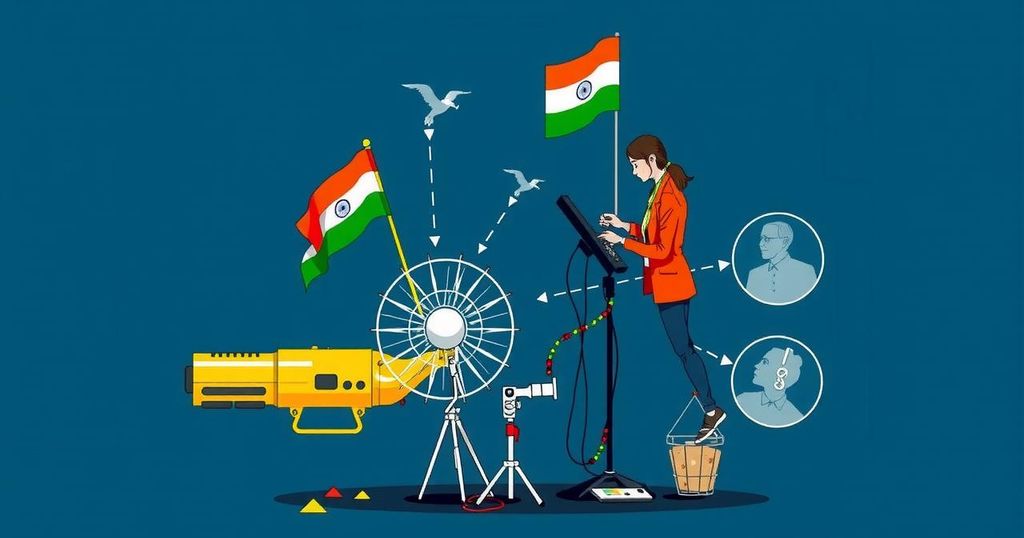Sanjay Raut criticizes electronic voting machines, asserting they harm India’s democracy. Citing global examples where EVMs have been banned, he believes their continued use undermines electoral integrity. Raut’s statements come in light of the Shiv Sena’s poor performance in recent elections, calling for a return to ballot paper voting for restoring public trust.
In his latest column for the party’s mouthpiece, Sanjay Raut of the Shiv Sena (UBT) has voiced strong criticisms against electronic voting machines (EVMs), labeling them a “curse” on Indian democracy. Citing various nations that have abandoned EVMs in favor of traditional ballot paper voting, Raut attributes the Shiv Sena’s poor performance in the recent assembly elections to the alleged malfunctions and lack of transparency associated with EVMs. He claimed that the integrity of elections in India is compromised by the use of electronic voting systems, calling for a return to paper ballots to restore faith in the democratic process.
Raut’s discourse references notable instances from around the world where EVMs have been banned, including decisions made by countries such as the Netherlands and critiques by the German Supreme Court. He echoed sentiments from prominent figures like Elon Musk, who has labeled EVMs a “big scam”, suggesting that the electoral outcomes can be manipulated through hacking. Raut further criticized the Supreme Court for supporting the continued use of EVMs, indicating a broader concern about the functioning of democracy in India.
Additionally, Raut did not spare criticism for former Chief Justice Dhananjay Chandrachud, accusing him of enabling what he termed as unconstitutional governance in Maharashtra, claiming such actions are detrimental to the country’s stability. In a lighter yet pointed comment, he remarked on caretaker Chief Minister Eknath Shinde’s health, suggesting that he may need an occultist rather than conventional medical help.
Alongside Raut, Aaditya Thackeray also expressed dissatisfaction over the Mahayuti alliance’s sluggishness in forming a government post-election, emphasizing that delays demean both the state of Maharashtra and the supportive role of the Election Commission.
Raut’s arguments reflect an intense and ongoing debate about the efficacy and integrity of electronic voting systems in India, as well as the implications for governance and democratic processes.
The debate surrounding the use of electronic voting machines (EVMs) in India has been contentious since their introduction. Critics argue that EVMs compromise the transparency of elections, noting that numerous countries have reverted to traditional paper ballots due to similar concerns. Sanjay Raut’s recent statements add to this ongoing discourse, as he weighs in on the integrity of the democratic process following the Shiv Sena’s recent electoral challenges. The context of Raut’s criticisms includes significant events in Maharashtra’s political landscape and the role of key judicial figures.
In summary, Sanjay Raut’s strong condemnation of electronic voting machines raises critical questions regarding their impact on India’s electoral integrity. His arguments, reinforced by international precedents and opinions from influential figures, seek to shed light on the perceived deficiencies of the current electoral system. The continuing dialogue on EVMs reflects a broader struggle for transparency and credibility within Indian democracy amid political upheaval.
Original Source: www.hindustantimes.com






